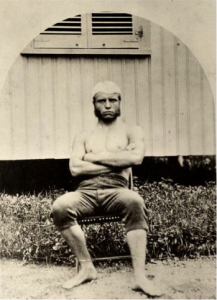Although one might believe that politics and sports would not be compatible, it has been revealed through this week’s readings that the opposite is true. Sports are a gateway for leaders, “good” or “bad”, to show their country’s power or dominance, and it can lead to horrible treatment of citizens or exploitation of their athletes. The ESPN article “While the World Watched” unfolds the tragic tale of the concentration camp-like prisons that were a part of the Dirty War and included the torture and murder of thousands of prisoners. The journal article “Lifting ‘Round the World’: The Goodwill Weightlifting Tours of 1955.” discusses the dynamic between politics and sports in a different light, the use of sports to “win” the Cold War in the United States. The article explains how Paul Anderson, a famous weightlifter was able to make President Eisenhower proud as he beat his soviet adversaries but was not able to uphold his reputation during the second visit. The only time the United States could show goodwill towards either the Soviet Union or countries that were considered “on the fence” was when they won. Since Anderson was not able to win the second time, the U.S. demonstrated that good sportsmanship was not on the table.
“When you hear the words ‘World Cup,'” she says, “it reminds you what happened. It reminds you of the disappeared, of the kidnappings, of the murders. Everything comes together.”
I believe that this quote does a great job of describing the article “While the World Watched.” What is supposed to be an event that brings people together, and for many a time to forget the perils of life to support your team, was shattered by a dictator who wanted to destroy every one of his enemies, even if they were just speaking up for the less fortunate. Stories like those of Taty Almeida, a mother who lost her son to the concentration camps, are important to keeping these narratives alive, and making sure people around the world understand the torture her son or others may have endured before, during, or even after the World Cup. The prisoners who were able to survive the devastating treatment or the relatives of the still missing, will have to relive the brutality or suffering they endured every time the World Cup comes on until they can get justice, which may never come.
